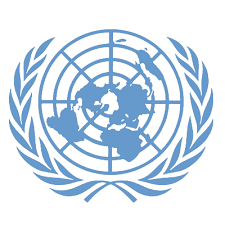Letter to NZ Ambassador to the UN about Universal Health Coverage

Subject: Request for New Zealand to support a UN Political Declaration on UHC that addresses the needs of persons living with a rare disease
Dear H.E. Mr. Craig John Hawke, Ambassador, Extraordinary and Plenipotentiary,
I am writing to you from Rare Disorders New Zealand (RDNZ) as the national organisation for people with rare disorders. More than 400,000 people are affected by a rare disease in New Zealand and an estimated 300+ million in the world. While rare diseases often share the impacts and challenges of common severe conditions, because each affect very small numbers scattered across the globe, they are often misdiagnosed or undiagnosed and most persons affected are not referred to appropriate specialists. In addition, rare diseases receive little research attention and funding, resulting in limited knowledge about causes, natural progression, and effective intervention. In fact, fewer than 5% of diseases have any known treatment. Furthermore, rare diseases impact not only a person’s health, but also their socio-economic status, family, education and labour opportunities. Difficulties such as poverty, unemployment, stigmatisation and social exclusion are a daily reality for most people affected.
Despite the huge health and socio-economic needs of people with a rare disease, this population has long been ignored in public policy. However, the tide is turning, and we are encouraged by the amazing steps being adopted in our neighbouring country Australia and the fact that Hon David Clark, Minister of Health met with RDNZ and heard our concerns that this population is being left behind. He stated he would meet with Australian Minister of Health Greg Hunt and discuss their progress and current National Strategic Action Plan for Rare Diseases. RDNZ are eager for ongoing dialogue with Minister Clark and ultimately inclusion for people with rare diseases within a cohesive health framework in NZ.
We are convinced that efforts undertaken at the national level will be solidified by the international framework provided by the United Nations 2030 Agenda with its renewed emphasis on Sustainable Development and firm intention ‘to leave no one behind’. In particular, we are encouraged by the increasing support towards Universal Health Coverage (UHC) and its focus on having affordable, accessible, quality services for all. As UHC is so firmly rooted in the human right to health, it is our firm belief that the rare disease community, a vulnerable population, will be important beneficiaries of, but also contributors to, national and global efforts to implement UHC. In fact, the UN Office of the High Commissioner for Human Rights confirmed this in their most recent report to the UN Economic and Social Council (ECOSOC).
The rare disease community aims to take targeted incremental steps towards the durable inclusion of rare diseases in the UN 2030 Agenda and each Member State’s policy agenda. This call was first issued at a high-level policy event organised at the UN Headquarters in New York in 2016, and then again in 2019 co-hosted by 15 Member States. Other activities have included the organisation of side-events to the World Health Assembly as well as working closely with the UN Office of the High Commissioner for Human Rights and the Special Rapporteur on the rights of persons with disabilities to raise visibility of persons living with a rare disease. The upcoming High Level Meeting on UHC taking place at the United Nations on 23 September represents the next key milestone for our community. We are aware that the agreements on measures and solutions to cooperate towards UHC, will be materialised in a Political Declaration on UHC, negotiated by Member States and endorsed by Heads of State. In fact, the latest draft of the declaration included an important mention, calling for strengthened efforts to address rare diseases as part of universal health coverage, and calling for the implementation of effective, high impact, people-centred, gender and disability responsive, and evidence based interventions, ensuring universal access to nationally determined sets of integrated quality health services at all levels of care for the prevention, diagnosis, treatment and care, with special emphasis on those who are vulnerable.
We truly hope that we can count on your support towards the adoption of a final Political Declaration that considers the needs of persons living with a rare disease and acknowledges the need for a targeted approach. In this respect, we would be happy to arrange a meeting with you or relevant colleagues, or to facilitate a meeting between your Permanent Mission and our representative in New York who will be able to answer any questions you may have. We, as the national organisation representing people living with a rare disease in New Zealand, welcome any action you can take to improve the lives of your constituents living with a rare disease.
Sincerely,
Lisa Foster Bsc (Hons)
Rare Disorders New Zealand